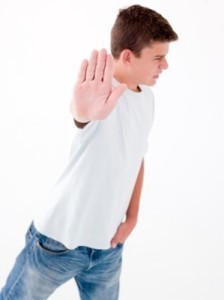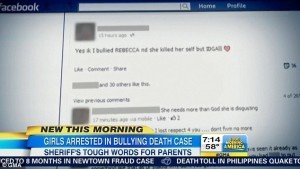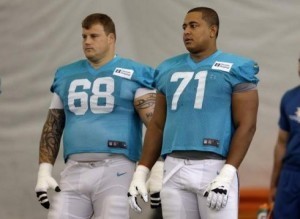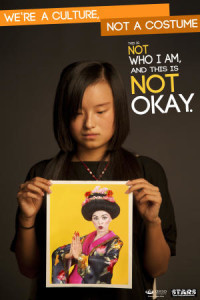Rosalind Wiseman's Blog, page 34
November 25, 2013
Family Circle: How Teens Are Standing Up to Adult Bullies
 People have described teens to me with words like “terrifying,” “apathetic,” “hormone-crazed,” “entitled” and “naive.” Add that to the general assumption that teens use social networking only to say “Hey! What’s up?”, relentlessly bully one another or send inappropriate pictures to each other, and it’s easy to think the younger generation can’t be counted on to make the world a better place.
People have described teens to me with words like “terrifying,” “apathetic,” “hormone-crazed,” “entitled” and “naive.” Add that to the general assumption that teens use social networking only to say “Hey! What’s up?”, relentlessly bully one another or send inappropriate pictures to each other, and it’s easy to think the younger generation can’t be counted on to make the world a better place.
Not true. I recently came across two examples that show how often teens are standing up against bullying and using the Internet in positive ways. The challenge for us is admitting that often the people they’re standing up to are bullying adults.
Last week, the Richardson High School PTA in Dallas sponsored motivational speaker Justin Lookadoo to advise the students on dating. One piece of advice that he shared with the Richardson female students, which can also be found on his website with co-author Hayley DiMarco, was:
Be mysterious. Dateable girls know how to shut up. They don’t monopolize the conversation….The sexiest thing on a girl is happiness. Dateable girls aren’t downers, they love life.
Here’s Lookadoo and DiMarco’s advice for male students:
Dateable guys know they aren’t as sensitive as girls, and that’s okay. They know they are stronger, more dangerous and more adventurous, and that’s okay. Dateable guys are real men who aren’t afraid to be guys.
Mr. Lookadoo and Ms. DiMarco base their advice on their Christian faith. Having worked with many wonderful people in Christian communities who would never agree with this kind of teaching, it’s incredible to me that a school would allow someone to share a message that girls should “shut up,” and if they do speak, to express only “happy” opinions, while telling boys to be more “adventurous” and “dangerous.” This advice is exactly the kind of message that sets up the dynamic where girls are taught to say nothing when they’re in a sexual situation that they don’t want to be in and gives boys permission to run roughshod over those girls—which is exactly how rape between acquaintances often occurs.
Many teens were outraged by Mr. Lookadoo’s comments and confronted him during the assembly. But they also used Twitter to share their feelings about his message and the frustration they felt toward the school for bringing him.
Here is Aisleeen Menezes’ tweet: I refuse to listen to the enforcement of stereotypes and gender roles.
Another student, Meg Colburn, tweeted: I love that RISD has a no-tolerance on bullying and they brought in a bully to motivate us.
And even better, other students, parents and alumni are supporting those that spoke out. You know who are the only ones sending disrespectful responses to these students? Adults…whom the kids don’t know.
Across the country, in Washington, D.C., another incident took place. I grew up in the nation’s capital and spent most of my career there as well, so it was inevitable that I would learn that one of the best high school newspapers in the country was Annandale High School’s The A-Blast. Last week The A-Blast again showed how good reporting and a civil, measured response can make a difference. Here’s what happened.
Last Friday night, the Annandale football coach bullied his own school’s marching band off the field during halftime, with some vocal support from the football parents. In response, A-Blast reporters wrote an article protesting the marching band’s treatment, concisely articulating the problems and asking for an appropriate administrative response. My favorite part of the article is when the writers ask the administration the larger question of what the school values—not in words but in actions:
Under the direction of Coach Scott, the football team has won one game throughout their 2013 season while the band received Virginia State Champions and won a National award for their “III-Open” class (which is the hardest competition division). And all the while, the band stands proud with the football team through every loss and through every win. Since when has administration asked the football team to support the band by going to a competition, whether we win or lose?
The result was swift. Again, students, parents and alumni supported the marching band; the principal apologized to the student body and requested that the football coach do so as well. I hope the coach takes this opportunity to role-model what a person should do when he makes a mistake and needs to make amends. But in the meantime, as we wait for adults to do the right thing, let’s not forget that young people often can show us the way.
Have you seen a recent example of young people standing up to adult bullies? Post a comment and share it here.
Originally Posted on Family Circle Momster
November 21, 2013
Time: Hook-ups, Friendships and the New Rules of ‘Dibs’ for Teen Boys
The Rules of Dibs
If it’s well documented or recognized in the friend group that you liked a girl first or you like her more than the other dibber, than you have the first right to dibs. That means that people know how you feel because you have said something to indicate your feelings.
You must follow through with the dibs in a reasonable amount of time, normally defined as about two to three weeks, unless other things come up, like going away for sports or school breaks.
If you make no progress or you fail, you must relinquish the dibs and communicate this to the friend in competition with you within one to two weeks.
You can’t call dibs to spite your friend or be annoying.
You can’t call dibs if you know you won’t succeed.
You can’t call dibs if you know the girl already likes someone else, especially if that someone is a friend of yours.
If the girl you’ve called dibs on rejects you, graciously bow out.
You don’t have the right to get mad at another guy for talking (not “talking”) to your dibs.
To read the full article and watch the video, head to @TIMEhealth here.
Rosalind is featured in an article and video in this Time Magazine’s post which reveals the “Rules of Dibs” and explores the “thorny social and ethical dynamics of hookups.”
November 14, 2013
Family Circle: Picking Your Battles as a Parent
 Have you ever walked away from a situation with your child and then realized that you were being irresponsible or inconsistent? I have. I’ve let my boys watch TV or play video games way past the time limits I mandated in our family screen time contract. I’ve also let them spray whipped cream from a can directly into their mouths—even though we have a rule that no one in the family can eat or drink directly out of a container. Or worse, I’ve watched a movie with them, realized about 10 minutes into it that some of the content was inappropriate, but because we were having such a good time, I didn’t turn it off.
Have you ever walked away from a situation with your child and then realized that you were being irresponsible or inconsistent? I have. I’ve let my boys watch TV or play video games way past the time limits I mandated in our family screen time contract. I’ve also let them spray whipped cream from a can directly into their mouths—even though we have a rule that no one in the family can eat or drink directly out of a container. Or worse, I’ve watched a movie with them, realized about 10 minutes into it that some of the content was inappropriate, but because we were having such a good time, I didn’t turn it off.
As much as we set down rules, it’s the rare parent who always adheres to them. We get tired. We get distracted. We decide that—just this once—it really doesn’t matter. But inconsistently enforcing rules results in our children not taking us seriously. Worse, if we don’t abide by rules ourselves, we lose credibility as authority figures and we role model that they don’t have to take those rules seriously either.
So what’s the difference—or is there one—between bending the rules and hypocrisy? What are the rules that we can never relax? For me, there are three. It’s always good to have concrete examples, so I’ve chosen a few recent ones that I hope will be good discussion starters with your kids.
1. No one is above the rules that everyone else has to abide by.

ABC News photo. Gansler, center, in white shirt.
When Maryland Attorney General Doug Gansler stopped by a house during Beach Week to talk to his son, he walked into a party filled with underage drinking.
Anyone who grows up in that area (and I did) knows that Beach Week is where you go after school ends in June to party your butt off. So either Gansler was a completely out-of-touch parent, or he walked into that situation knowing that kids would be drinking but, because it was his son and kids he knew, they would get special treatment.
The precise nature of his job means he is in charge of upholding the law. Yet there he was, surrounded by teens breaking the law. He was condoning underage drinking and signaling to every teen there that they are above the law when a person in authority gives you special treatment.
2. You can’t participate in the humiliation of another person.
After the suicide of 12-year-old Rebecca Sedwick this fall, one of her tormentors posted on Facebook, “Yes ik [I know] I bullied Rebecca nd she killed her self but IDGAF [I don't give a (expletive)].”

Let’s not focus on the disturbing reality that a 14-year-old girl would be proud to say she doesn’t care that she contributed to someone’s death. Instead, I want to focus on the more than 30 kids who “liked” that post. As a parent, using the “likes” is a more realistic example of what it means to contribute to someone’s humiliation. But here’s what we need to communicate to our children. Even if you don’t directly bully someone, if you support the bullies in any way, you are contributing to the misery of another human being. As the target, it’s horrible to be bullied by one or two people, but it’s when everyone else supports them that life becomes unbearable. Those “likes” make the target feel so isolated, desperate and anxious that it can seem like there’s no escape. So parents, the “likes” supporting someone’s humiliation have to stop.
3. If you work hard, you have the right to belong to a group without being degraded as a condition for acceptance or a demonstration of loyalty. The same rule applies for anyone else.
The recent revelation that Miami Dolphins player Jonathan Martin was hazed by fellow player Richie Incognito is a horribly good example of what can happen to new players on any kind of team. It can and does happen in the NFL, just like it can and does happen in high school and college.

Associated Press/AP Photo. Incognito (left), Martin (right).
There are people who believe that you have to pay your dues to have the right to belong to their group, and those dues often mean being abused by the people who have been in the group longer than you.
We need to have explicit conversations with our children explaining that paying dues is about hard work and working “clean.” If your child contributes to abuse in any way, no matter how good they are, you will forbid them from playing. Because teaching your child to be a decent person is way more important than any championship game.
The bottom line comes down to this: Once in a while I’m going to let my children spray whipped cream into their mouths. It’s a little gross. And it’s also probably a little more fun because they’re breaking a house rule. But they aren’t hurting anyone. Where the rules can’t be broken is when you hurt others and refuse to be held accountable for your actions. That’s always going to be my bottom line.
What are the unbreakable rules in your household? Post a comment and tell me.
Originally Posted on Family Circle Momster
Family Online Safety Institute (FOSI) Annual Conference Keynote
Rosalind, author of “Masterminds and Wingmen: Helping Your Son Cope With Schoolyard Power, Locker-Room Tests, Girlfriends, And The New Rules Of Boy World” at FOSI’s 7th Annual Conference (#fosi2013). FOSI’s Annual Conference: Connect.Share.Empower, took place on November 6th and 7th in Washington, DC.
October 31, 2013
Family Circle: What You Can Do About Offensive Halloween Costumes
I moved to Boulder, Colorado, from Washington, DC, a little more than a year ago. There are a lot of wonderful things about living here. It’s beautiful, the weather is usually great (minus our biblical flood last month) and the people are incredibly nice (they don’t even honk when they have every reason to). But racially and culturally diverse it is not. And in the past I’ve noticed that when you don’t have a lot of experience with people of difference races, ethnicities or religions, you are susceptible to sometimes doing and saying things that reflect a lack of awareness.
That’s why I was really relieved and happy to see this awareness campaign at the University of Colorado for Halloween. It doesn’t blame people for being stupid or assume they’re bigots. Instead, it shows how an ignorant attempt at being funny can reinforce racial stereotypes and reflect a personal ignorance that can be really hurtful to others.

What’s particularly important about an institution like the University of Colorado doing this campaign is it takes the pressure off students who are in the minority. Being the one of anything among a majority can be exhausting and frustrating because it’s hard enough to feel comfortable in your environment without calling out people every time they say or do something stupid to you or about you.
As a parent, and especially if you live in a community where most people look the same, these are the kinds of spontaneous moments you can use to concretely impart a lesson about racism. Show your kids the Colorado campaign. Ask them what they think about it. Then tell them how you would feel if you were the parent of the Asian child, the black child or the poor white child who is being made fun of in these pictures. These are the lessons that last a lifetime.
Have you taken note of any offensive Halloween costumes this year? Post a comment and tell me what happened.
Originally posted at Family Circle Momster
October 30, 2013
Family Circle: When Men Remember What It Was Like To Be A Boy
 As more fathers and coaches attend my presentations, many of them are sharing how difficult it is for them to reflect on their own adolescence. As you will read below, if they were humiliated or bullied when they were young, it’s often overwhelming as an adult to suddenly realize how deeply those experiences affected them.
As more fathers and coaches attend my presentations, many of them are sharing how difficult it is for them to reflect on their own adolescence. As you will read below, if they were humiliated or bullied when they were young, it’s often overwhelming as an adult to suddenly realize how deeply those experiences affected them.
A father who came to one of my presentations allowed me to share the following letter he sent me about just such an awakening. I’ve edited it down and removed some of the more personal and heartbreaking parts, but hope you’ll still be as moved as I was when I read it. This is what courage truly looks like and a show of how hopeful people can be—despite destructive experiences—to make the world a better place.
******
“I am a father of two sons and a daughter. During your talk, you said, ‘Locker rooms are tough situations…Those moments are seared into people’s memories.’ You caught me with my guard down that evening because, before I could stop myself, I was remembering locker room horrors of when I was on the football team as a freshman in high school. That was 39 years ago. While you were talking, I became self-conscious and embarrassed because tears were welling up in my eyes.
“I attended a Catholic school that was so small they combined the varsity and B-squad in the same practices. Since we practiced together, we used the locker room at the same time. The verbal, psychological and physical abuse showered on us in the locker room was a routine part of our school day.
“This was only one layer of the trauma. The team had two coaches—men who were also our teachers. One taught us science and the other taught us English. I had grown to respect and trust them, but when they put on their coaching hats I didn’t recognize them. After the second or third practice, I made the mistake of going to my English teacher for support and comfort. It turned out to be a most painful and humiliating experience: His tough-guy rebuff left me feeling hurt and deeply betrayed. I think that was the point in my life when I vowed to NEVER ask for help again—especially from men. (It’s a vow that I was to keep for the next 36 years.) That was also the day that I stopped trusting or respecting either one of those men.
“All this happened in a private school setting. A big selling point to the parents was that their children were getting an education superior to anything that the public schools could offer: how to live a good, moral life and treat everyone with dignity. Our parents paid and entrusted these two coaches to be upstanding leaders and Christian role models to us. And yet these same two men fed us to the wolves. Looking back, I realize that even an explicitly religious environment is not influential enough to supersede the ‘man code.’
“Every single day of the season I wanted to quit, but the fear of public shame and humiliation always stopped me. I remember the massive feeling of relief after we played our last game and turned in our jerseys and equipment.
“For me to admit to him that I was scared, shamed and intimidated into joining the team—and then staying on the team—was taboo. To have a wimp for a son was intolerable. My father was a man of high standing in our community and county. The last thing he was going to do was use his influence to ask the coaches to protect his oldest son from a little horseplay in the locker room.
“I would have rather chopped off one of my hands than to let my mother know what was going on. She was a member of the Catholic School Board and she would have raised holy hell. If that happened, my life would have been over. I probably would have had to attend a school in a different county or state where no one knew me. I am not exaggerating.
“Over the years I was to find out that the intense social pressure to prove that I am a man NEVER lets up. In college I joined a social fraternity and went through a semester of hazing to be accepted into the brotherhood. I joined the U.S. Marine Corps and proved I was a man by surviving their boot camp and being promoted to sergeant in an infantry company.
“The man code of constantly proving oneself kept right on going when I joined the business world. So many times it is portrayed as healthy competition that keeps our economy vibrant and strong. I don’t agree. I say it is destructive and dysfunctional. It fosters distrust, enormous stress and superficial relationships, and leaves men feeling exhausted and intensely lonely.
“By the time I was in my 40s I’d had enough and began tentatively searching out other men who might feel the same. I eventually found them, but there were many years when it felt like I was searching for a needle in a haystack. My persistence has paid off because I am now actually starting to trust some of the men in my life and consider them to be true friends. This is something brand-new to me.
“I think that the man code is deeply embedded in our culture and has been for centuries—if not millennia. But I believe that if enough men become aware of how destructive it is, we can create a systems shift. I think it’s crucial that men model this empowering way of life to other men and boys. Words are important, but actions are even more powerful.”
Has your husband been struggling with the “man code” since he was a boy? Forward this blog to him and see what he has to say. Post a comment and tell me what happened.
Originally posted at Family Circle Momster
October 15, 2013
Family Circle: Ever “Lost It” in Front of Your Kid?
 Over the years, I’ve thought a lot about young people’s reluctance to reach out to their parents when they need them. Ever heard a kid say the following? “I don’t want to tell my mom (or dad) when something’s wrong because they’ll flip out.” Kids and teens say this to me so often and it always worries me. But after an unfortunate experience I had a few days ago, I’ve been thinking about it a lot more.
Over the years, I’ve thought a lot about young people’s reluctance to reach out to their parents when they need them. Ever heard a kid say the following? “I don’t want to tell my mom (or dad) when something’s wrong because they’ll flip out.” Kids and teens say this to me so often and it always worries me. But after an unfortunate experience I had a few days ago, I’ve been thinking about it a lot more.
Elijah, my older son, started playing middle-school football this fall. My husband was adamantly against it at first, so Elijah campaigned for months. After a lot of family discussion, we allowed him to play and one of the main reasons was we had heard incredibly positive things about the coach. He has that combination of toughness and supportiveness that middle-school boys crave.
Last weekend they played against an unbeaten team and finished the game tied—after three overtimes. The boys were devastated, but after the game, as the parents all stayed behind and listened to the coach rally the boys, I was so grateful that my son was having that experience. He was being told he’d worked hard and should be proud of what his team had accomplished, and to focus on what they all needed to do better next time.
That makes what happened next even stranger. As I walked down the field to put my folding chairs in their bags, one of the boy’s mothers verbally attacked the coach right in front of her son, my son and another player. By the time I got back to where my son was standing, the mother had walked away but her child was standing next to his father in tears.
I don’t want to focus on the details of what the mom said and whether it was right or wrong. What I do want to focus on is the serious impact of “flipping out” in front of our kids—especially when we parents think we’re acting on behalf of our child. I’d bet any amount of money that the mother who yelled felt she was being the “momma bear.” She believed she was protecting her child and only doing what was right. But beyond the negative impact of her behavior on the coach (this a common reason great coaches give up teaching our kids), she is guaranteeing that her child will never go to her when he needs someone’s help.
It’s ironic. When we think we’re most strongly advocating for our children, we assume that they’ll see our behavior as being on their side. Using that logic, it’s natural that a parent would miss the obvious: Overreaction in any area of parenting (a problem with school, on a team, with friends) only convinces the child that their parent can’t be trusted to think through a problem calmly and strategically. What’s more, the child has good reason to believe that if the parent finds out about a problem, their involvement will only make the situation worse.
Probably every parent has had a moment when they’ve blown things out of proportion. I know I have. So what can we do? When we’ve gone over the top, we need to acknowledge it, first to ourselves, then to our children. We need to work on managing ourselves so that when we get worked up—no matter how justified we believe we are—we think through how we are going to communicate our feelings in a manner that gives the other person the best chance of hearing what we’re saying.
The mom at the game may have had a legitimate complaint, but because she conducted herself so poorly, the content of her words was lost. Her method of delivery was so inappropriate. If we think we’re losing control, let’s say it. As in, “Look, I’m clearly really upset right now, so I need a few minutes to get myself together.”
When we do things like that, take a “time-out” for ourselves, admit we made a mistake and tell our children that we’re sorry for overreacting, we’re going to do better and our kids will come to us. Why does this matter? Because we’re role modeling exactly what our kids need and want to see. When you make a mistake, you can talk about it. When you come forward and share a problem with someone you love, you’re a better person for it and your relationship is strengthened as well.
Have you ever “lost it” in front of your kid? Post a comment and tell me what happened.
Originally posted at Family Circle Momster
October 10, 2013
Family Circle: Could Your Child Prevent a Suicide?
While our children can’t be therapists to other children, they can provide comfort and a lifeline of support. In honor of depression awareness month, I wrote an article for parents about how to talk to your child about being this support.
 One of the most painful parts of my work is sitting with parents who have lost a child to suicide. As I listen to their stories, I can’t help but think of my own sons. Would my boys ever be so unhappy that they would consider taking their lives? Would they tell me if they were?
One of the most painful parts of my work is sitting with parents who have lost a child to suicide. As I listen to their stories, I can’t help but think of my own sons. Would my boys ever be so unhappy that they would consider taking their lives? Would they tell me if they were?
I know that kids often don’t tell their parents or others when they are miserable. They hide behind smiles or assurances of “I’m fine.” That’s what Bart Palosz from Greenwich, Connecticut, did. According to CNN.com, a month before he killed himself on August 27, he posted, “I notice if I sound sad I’m normal and if I act happy, cheerful, and ‘normal’ there is a high chance that I will try to poison myself, cut myself, commit suicide, or jump in front of a truck:)”
I also often think of the friends, classmates and teammates who were around the child who took his life. Did they know he was so miserable? Did they know why? Did they do anything to reach out to the child to assure him he wasn’t so alone?
The reasons a person decides to take his or her life are complicated. But one thing I know to be true for all of us: If another person sees us in our deepest, darkest moments of despair and reaches out a helping hand, we often step away from the cliff. It is our social connection to one another that gives us the strength to live another day.
Even if your child never considers suicide, there’s a good chance he will know a peer who has. He may witness the child being targeted by other kids who drive that child to feel isolated, attacked and worthless. Our kids shouldn’t be expected to act as mental health professionals, but they should be able to show empathy and compassion to a person in need. So what do you say to your child beyond, “If you see someone who looks depressed, be kind to him”?
If we’re more specific about the situations our children are likely to encounter, we can give them an easier way to put their good intentions into action. Here’s a suggestion for how to do it.
If you have an older child (eighth grade and above), try to stay away from the word “bullying.” Instead, say something like: “If you see someone—or you get any kind of social networking post where someone—is being relentless humiliated, I expect you to not contribute to it in any way. If it happens in person, don’t pretend you didn’t hear it. Don’t laugh, even if it’s out of nervousness. And if you find yourself doing either of these things, stop yourself and apologize to the target. And at the very least, turn to the person who is tormenting this kid and say something like ‘Lay off.’ If you see it on a social network, not only do I expect you not to forward it, but you will do what you can to stop people from using these pictures against the other person.”
It’s the feeling that no one in their world supports them, will stand by them or will stop the campaign of cruelty that makes kids feel they don’t have the strength to keep their head high another day. Our children can offer comfort and support to people in need. They can make a difference in the moment it may matter the most.
Have you spoken to your child about sticking up for kids who are being targeted? What have you said? Post a comment and tell me.
Originally posted at Family Circle Momster
September 26, 2013
Facebook Stories: Parents – Understand Your Kids and Social Media
This essay was produced in collaboration with The Huffington Post. To submit your own Facebook story, click here.
—–
When I graduated from college I had no plans to be a teacher or a writer. Instead, I was desperately looking for a job in politics…and failing. Six months later, tail between my legs, I moved back to Washington D.C., where I’d grown up. It was Christmas time and I reluctantly went to a family party hoping I wouldn’t have to answer any well-meaning questions about my future plans.
But I went and no one asked me those questions. Instead, people wanted to ask me about the rumors: Was it true that I’d just gotten a black belt in karate? Yes, it was true. I’d been studying martial arts throughout college and was pretty obsessed. People couldn’t believe it. To say it mildly, we aren’t a physically tough family. Then someone asked if I could teach self-defense to their daughter. I looked at my boyfriend (also a martial artist and now my husband of many years) and said, “Why not?” I didn’t have anything else to do.
That is how at 22 I taught high school girls self-defense. It’s how a year later I ran a violence prevention program. It’s what gave me the opportunity to ask the questions I’ve never stopped asking.
What targeted someone for social cruelty?
What made people witness cruelty and not intervene?
What made people humiliate others?
And how can adults most effectively talk to young people about these crucial issues?
Twenty years later I’m still figuring out the answers, and I’d like to share a few things I’ve learned along the way. Whether it’s in the hallway, the locker room, or online, it’s inevitable that young people will face complex social conflicts. And adults need to give them advice that accurately reflects their lives.
But in order to give good advice it’s critical to acknowledge that sometimes our assumptions about young people get in the way.
For example, many adults believe young people impulsively reveal their private lives for the world to see. That’s just not true. Most kids are deliberate about what they post. Think of it this way: Young people pay a lot of attention to their clothes, hairstyle and shoes because it’s how they show their identity to the world. They often change how they act or what they say in relation to who is around them. There’s no difference between the decisions they make in “real life” and what, how and who gets to see certain information they post on their Facebook timeline or other social networking platforms.
Teens are showing deliberate behavior, and this is supported by a recent survey taken by Pew, who discovered that the majority of teens who use Facebook set their profile to either fully or partially private and 70% of them have sought outside advice about how to manage some aspect of their privacy online.
If we base our parenting on assumptions and stereotypes, our kids will understandably be defensive and be much less likely to listen to or seek advise from us or listen to our values when they’re torn about what they should do in a conflict.
And that’s why I’ve contributed to the Facebook Guide for Educators and Community Leaders with a few points of advice for the adults in our teens advice:
First, understand their world. Sometimes adults think about the difference between online life and offline life, but for teens, it’s just life. Just as teens are playing on the soccer field or interacting with other kids at school, they will be interacting online too. Social media is an extension of life.
Second, show respect. It’s important to show teens a level of respect as they create a space online that allows them to communication and express themselves. Yes, go ahead and friend your kids on Facebook, but show them the same respect that you show them in other public situations – this is not the place to correct their grammar or spelling, or criticize them in front of their friends.
Third, encourage their critical thinking. One of the best pieces of advice to give a teen using any social media platform is to think before they post. Take the opportunity to remind them that anything they post can be copied, pasted and sent around in ways that they did not intend. If they have any doubts about whether, down the road, they will be comfortable with something they post, it’s better not to post it in the first place. If they do post something they later regret, they should immediately sincerely apologize to the recipient and offer to make amends.
Our children need good guidance from the people who love them. I know as a mother and teacher that when kids feel they have that in their lives, no matter what kind of experiences they have, wherever they have them, we’re all better off.
—
The Facebook Guide for Educators and Community Leaders offers advice and tips for the adults in teens’ lives about how to understand social media, generally, and Facebook specifically. The guide features content from a variety of sources, including the Family Online Safety Institute, WiredSafety, ConnectSafely.org, and Edutopia. You can find the guide on the Facebook Safety Page here.
Originally posted on Facebook Stories
Huffington Post: Parents – Understand Your Kids and Social Media
This story was produced in partnership with Facebook Stories. Submit your own Facebook story here.
—–
When I graduated from college I had no plans to be a teacher or a writer. Instead, I was desperately looking for a job in politics…and failing. Six months later, tail between my legs, I moved back to Washington D.C., where I’d grown up. It was Christmas time and I reluctantly went to a family party hoping I wouldn’t have to answer any well-meaning questions about my future plans.
But I went and no one asked me those questions. Instead, people wanted to ask me about the rumors: Was it true that I’d just gotten a black belt in karate? Yes, it was true. I’d been studying martial arts throughout college and was pretty obsessed. People couldn’t believe it. To say it mildly, we aren’t a physically tough family. Then someone asked if I could teach self-defense to their daughter. I looked at my boyfriend (also a martial artist and now my husband of many years) and said, “Why not?” I didn’t have anything else to do.
That is how at 22 I taught high school girls self-defense. It’s how a year later I ran a violence prevention program. It’s what gave me the opportunity to ask the questions I’ve never stopped asking.
What targeted someone for social cruelty?
What made people witness cruelty and not intervene?
What made people humiliate others?
And how can adults most effectively talk to young people about these crucial issues?
Twenty years later I’m still figuring out the answers, and I’d like to share a few things I’ve learned along the way. Whether it’s in the hallway, the locker room, or online, it’s inevitable that young people will face complex social conflicts. And adults need to give them advice that accurately reflects their lives.
But in order to give good advice it’s critical to acknowledge that sometimes our assumptions about young people get in the way.
For example, many adults believe young people impulsively reveal their private lives for the world to see. That’s just not true. Most kids are deliberate about what they post. Think of it this way: Young people pay a lot of attention to their clothes, hairstyle and shoes because it’s how they show their identity to the world. They often change how they act or what they say in relation to who is around them. There’s no difference between the decisions they make in “real life” and what, how and who gets to see certain information they post on their Facebook timeline or other social networking platforms.
Teens are showing deliberate behavior, and this is supported by a recent survey taken by Pew, who discovered that the majority of teens who use Facebook set their profile to either fully or partially private and 70% of them have sought outside advice about how to manage some aspect of their privacy online.
If we base our parenting on assumptions and stereotypes, our kids will understandably be defensive and be much less likely to listen to or seek advise from us or listen to our values when they’re torn about what they should do in a conflict.
And that’s why I’ve contributed to the Facebook Guide for Educators and Community Leaders with a few points of advice for the adults in our teens advice:
First, understand their world. Sometimes adults think about the difference between online life and offline life, but for teens, it’s just life. Just as teens are playing on the soccer field or interacting with other kids at school, they will be interacting online too. Social media is an extension of life.
Second, show respect. It’s important to show teens a level of respect as they create a space online that allows them to communication and express themselves. Yes, go ahead and friend your kids on Facebook, but show them the same respect that you show them in other public situations – this is not the place to correct their grammar or spelling, or criticize them in front of their friends.
Third, encourage their critical thinking. One of the best pieces of advice to give a teen using any social media platform is to think before they post. Take the opportunity to remind them that anything they post can be copied, pasted and sent around in ways that they did not intend. If they have any doubts about whether, down the road, they will be comfortable with something they post, it’s better not to post it in the first place. If they do post something they later regret, they should immediately sincerely apologize to the recipient and offer to make amends.
Our children need good guidance from the people who love them. I know as a mother and teacher that when kids feel they have that in their lives, no matter what kind of experiences they have, wherever they have them, we’re all better off.
—
The Facebook Guide for Educators and Community Leaders offers advice and tips for the adults in teens’ lives about how to understand social media, generally, and Facebook specifically. The guide features content from a variety of sources, including the Family Online Safety Institute, WiredSafety, ConnectSafely.org, and Edutopia. You can find the guide on the Facebook Safety Page here.
Originally posted on Huffington Post Good News




